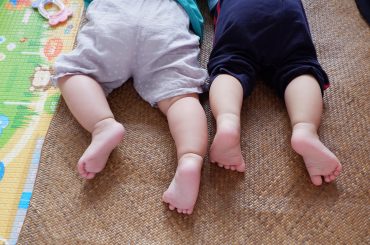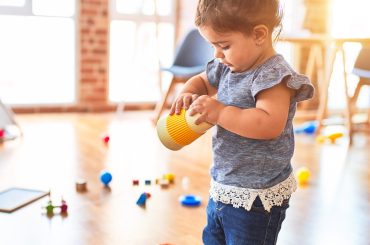Dr. Maria Montessori developed the principles on which Montessori education and upbringing are founded in the early twentieth century. Maria Montessori thought that children should be free to learn about their surroundings. She was in the opinion that a kid needed a nurturing atmosphere to flourish as a whole person and that education should emphasize hands-on learning .
Contents
What is Montessori parenting, what is the Montessori method and how can I use it to raise my child?
The Montessori approach to raising children is distinct that it emphasizes the importance of treating each kid as an individual and tailoring the home environment accordingly. The concept of learning by doing is emphasized. To rephrase, the child is not corrected for their actions.
For Montessori, a child’s natural curiosity should be encouraged by providing them with ample time and space to learn about their environment without interference. Every kid has special talents that need to be encouraged and fostered. When it comes to raising a family, everyone wants to know the secret to the perfect parent child bond.
Every parent wants to raise well-behaved, ethical children, and they have good success using positive parenting practices. But it’s not a simple task to accomplish. And it’s crucial to understand that parenting is a partnership between parent and child, not a one-way path.
When the flowers in a garden all bloom at once, the result is breathtaking. Similarly, parents can cultivate a fragrant “garden” if they acquire the “gardening” skills necessary to recognize and encourage their child’s unique character. This is the essence of effective parenting! If parents have the tools, they need to raise their children successfully, they will be able to close the achievement gap. If parents can strike a healthy balance between enabling their children and restricting their freedom, they can prevent their kids from being spoilt.
These skills help them become responsible parents. Distancing oneself from one’s offspring is a common result of parental incompetence. A true parent is one who actively works to help their children improve their character traits. However, today’s parents believe that their sole responsibilities are to spend a lot of money on expensive food and clothing and to pay a lot of money for expensive coaching classes. They don’t see that their actions are fostering a generation of youngsters who want nothing more than to indulge in materialistic pursuits. Flaws are nurtured by these gratifications.
Therefore, it is the responsibility of the parents to examine themselves to see if they are providing their children with genuine education. Bringing up happy, successful adults is the responsibility of parents.
What Every Parent Should Know About Montessori Parenting
Although most parents lack the knowledge to effectively implement Montessori methods, anyone with the motivation to do so, can learn and apply these techniques to raising their children.
Young children, even toddlers, have a clear idea of what they desire. Montessori parents, on the other hand, do little more than setting the stage and offer suggestions to their kids, who are free to explore their interests and learn through whichever means they see fit.
Parent-child interaction is essential for developing a feeling of self-worth in children. For proponents of the Montessori approach to raising kids, nothing is more important than quality time spent with their families. Consequently, parents should take the time to play with their children and see them interacting with the world, whether that’s inside or out. Parents can better understand their children’s wants and needs by spending time with them in a variety of activities, including play, walks, and meals.

Independence Subject to Boundaries
For Maria Montessori, independence is paramount. A license to wander. Independence through personal liberty. The concept of freedom is sometimes misunderstood and taken to mean “letting the youngster do anything, whenever they want.” Absolutely not. Children need to feel safe and valued before they would feel compelled to go out and learn about the world.
There needs to be a chance, but it needs to be a safe chance. Just like Montessori educators, you’ll need to set an example and enforce rules to ensure everyone’s safety. Your child’s environment can grow as they gain self-discipline and an appreciation for the things around them. Protecting younger children from harm requires stricter regulations, such as the use of safety equipment. The other Montessori principles all discuss different ways to allow kids freedom within reasonable bounds.
Conditioned Ambient
The concept of a “prepared environment” is fundamental to both the classroom and the home, where Montessori principles are practiced. Children learn responsibility and respect for their surroundings in such settings.
The room works well as a whole, allowing kids to go around at their own leisure, following their own interests. Learning in a Montessori classroom is centered on student participation. A child-friendly setting is one in which kids are given multiple play and exploration opportunities. Toys and books can be easily accessed in a playroom, for example, thanks to the presence of open shelving.
Be there for your kid when they need you.
There is no way to predict how much independence your child will need at a time. Who will they be, what problems will they face, and what will they want from you specifically?
You should resolve to take a purposeful approach to parenting and learn about your child. Do your best to learn and appreciate your child’s current stage of growth. Observation, both direct and indirect, is your best hope for understanding them.
Conclusion
What makes Montessori parenting different from traditional parenting? Whether you have a kid in a Montessori school now, are thinking about enrolling your child in one, or are simply curious about Maria Montessori and how she valued the child’s life, you have a place at our table.
We believe that your educational path need not to be spectacular. Our goal throughout our time together is simply to affirm you and help you see that your child’s and your own growth as a result of learning and using Montessori principles is a lifelong and deeply personal endeavor. It’s about building a more purposeful, linked relationship with your growing child as you study fundamentals and master content piece by piece.
You may also read:





